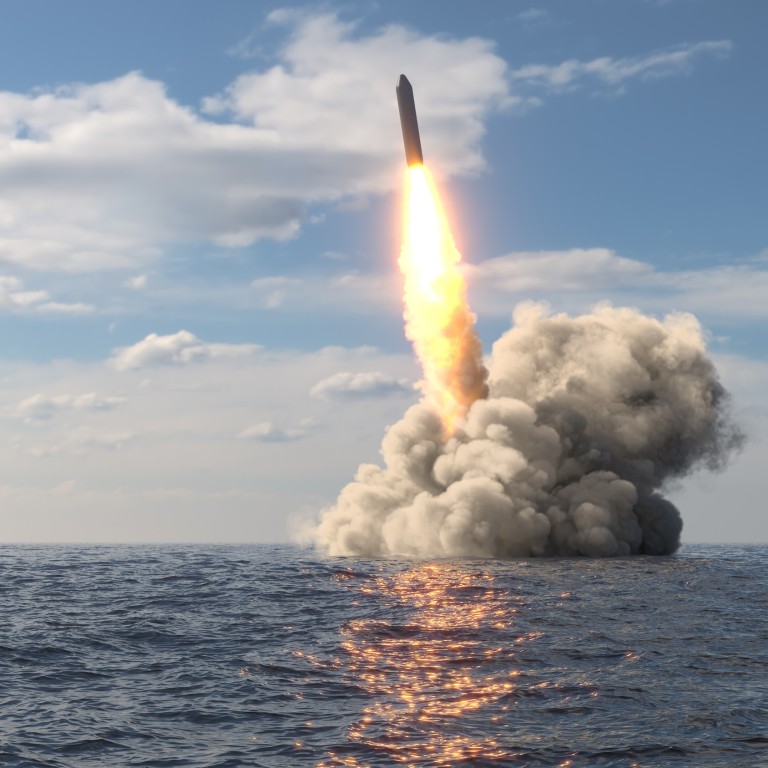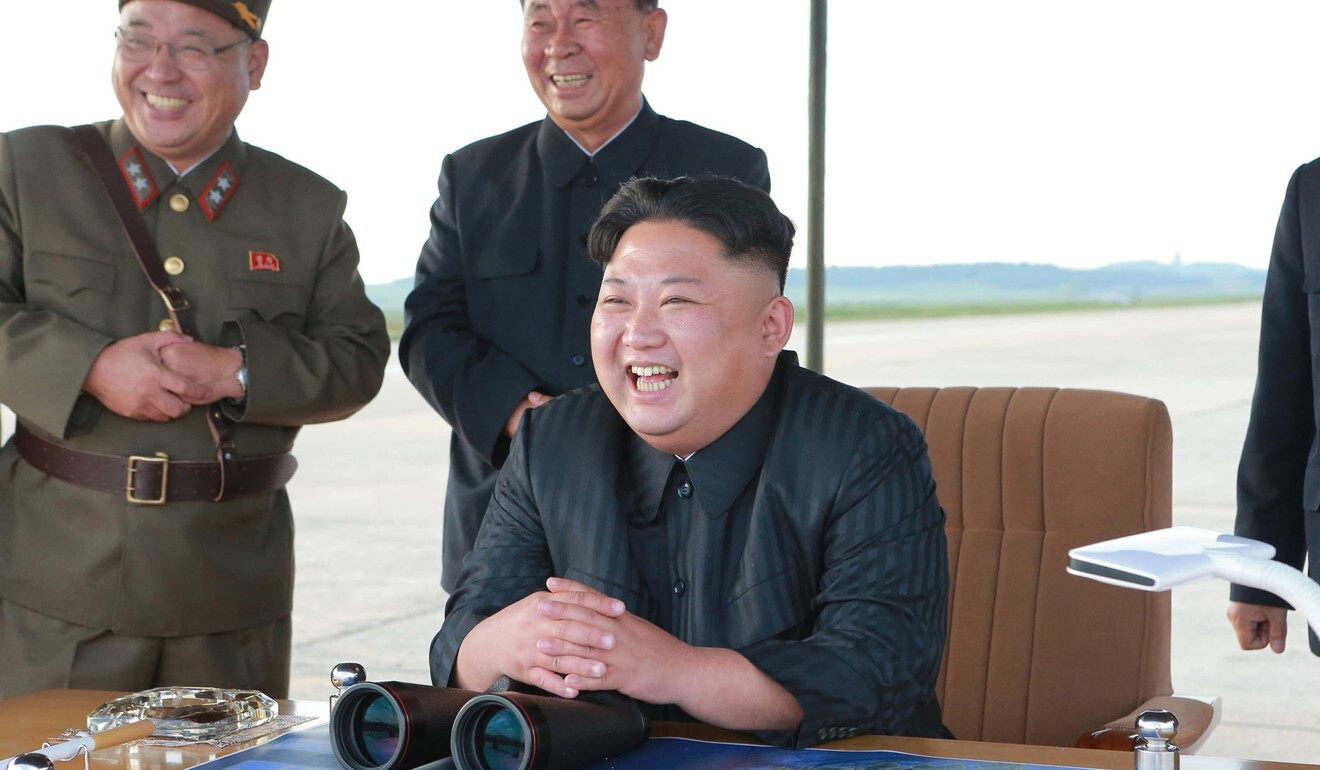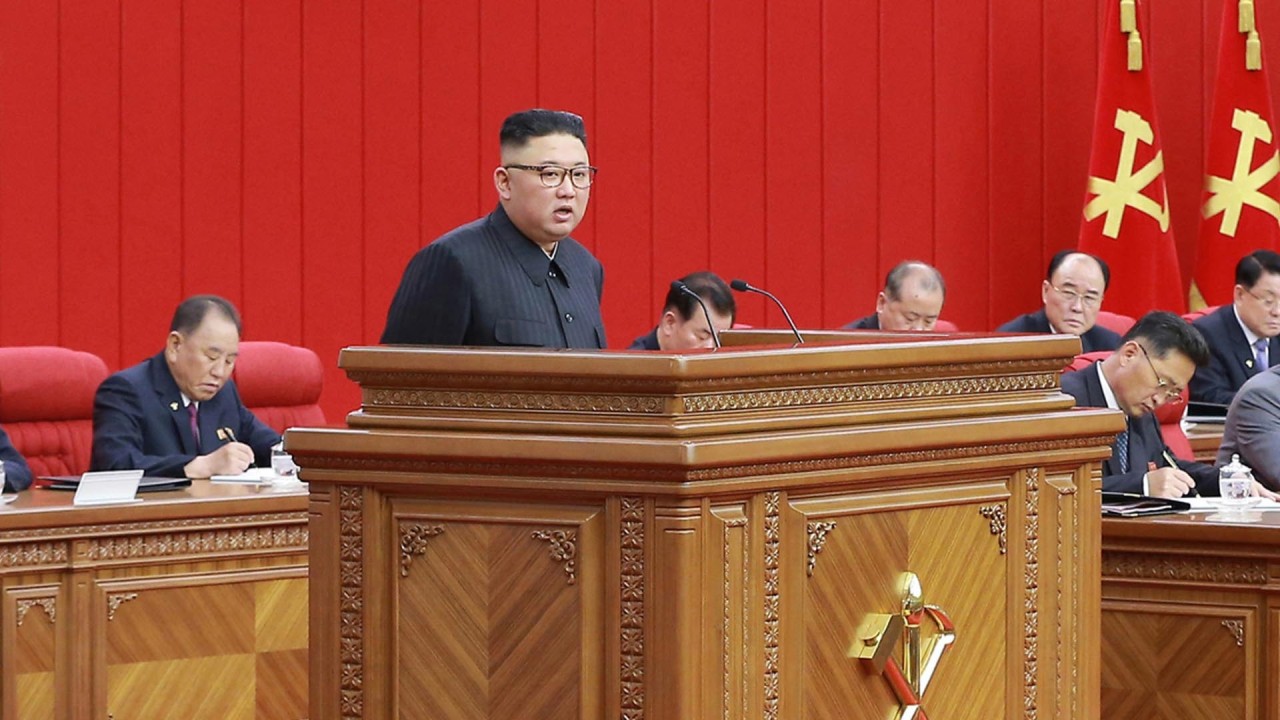
South Korea’s push to strengthen defences could trigger reaction from North and Japan, say Chinese observers
- Seoul successfully tested a submarine-launched ballistic missile last week as part of an ongoing drive to boost its military strength
- Nuclear-armed North Korea is the South’s biggest concern, but some analysts fear its efforts will have wider implications
South Korea’s push to develop its defensive capabilities saw it successfully test a submarine-launched ballistic missile last weekend, but some Chinese analysts have warned it risks a new arms race in east Asia.
Sunday’s launch from an underwater barge makes it the eighth country in the world to have mastered such a strategic capability, according to Yonhap television news, and it was one of many weapons Seoul has been developing amid a largely unnoticed arms race with North Korea.
In April, Korea Aerospace Industries unveiled the nation’s first prototype multirole fighter jet, the KF-X, which is being developed in partnership with Indonesia.
President Moon Jae-in said that the prototype “has opened a new era of self-defence and established a historic milestone for the development of the aviation industry”.
This year the country has also earmarked 3.2 trillion won (US$2.8 billion) to acquire dozens of new American combat helicopters and 24.3 billion won for Hanwha Group to develop a device that helps laser weapons target drones flying several kilometres away.
China stresses support for North Korea after special envoys’ phone call
Sun Xingjie, a Korean affairs specialist from Jilin University in northeast China, said South Korea’s military development posed a regional security dilemma.
“I think both North Korea and Japan would be alarmed to see Seoul’s visible and meaningful military improvement. If the two countries both decide to enhance their own military power, then we will face a very awkward situation, in which every country is seeking security by acquiring more powerful military capabilities but instead makes the whole situation unsafe,” said Sun.
Song Zhongping, a former People’s Liberation Army instructor, is worried that the denuclearisation in the Korean peninsula will become more difficult in the future.

“If Seoul’s military progress makes Pyongyang more determined to pursue more sophisticated weapons, then the peninsula is bound to be more dangerous than ever,” he said.
But other analysts said South Korea has legitimate reasons to build up its military.
The country’s biggest security threat comes from North Korea, which announced in 2017 that it had successfully tested a hydrogen bomb.
China and North Korea show united front as US offers talks
Hwang Jae-ho, director of the Global Security Cooperation Centre at Hankuk University of Foreign Studies in Seoul, said Seoul’s military build-up is aimed at deterrence.
“So far, these developments are still modest in scale, especially when compared to North Korea, which has nuclear strike capabilities,” Hwang said.

01:27
North Korean leader Kim Jong-un describes nation’s food situation as ‘tense’
Malcolm Davis, a senior analyst specialising in Chinese security at the Australian Strategic Policy Institute in Canberra, agreed. “By having a sea-based prompt-strike capability based around [submarine-launched ballistic missiles], Seoul has some potential to attack North Korean nuclear ballistic missile forces prior to launch in a damage limitation strategy.
“I suspect that this is a tactical response against a growing North Korean threat – and a hedge against future uncertainty regarding US extended nuclear deterrence security guarantees weakening, perhaps in a future administration after 2024.”

